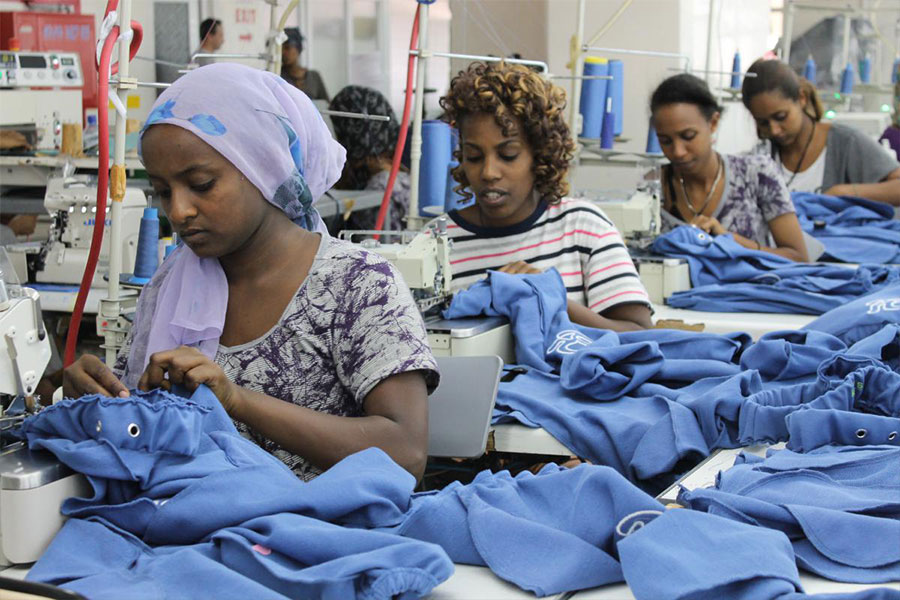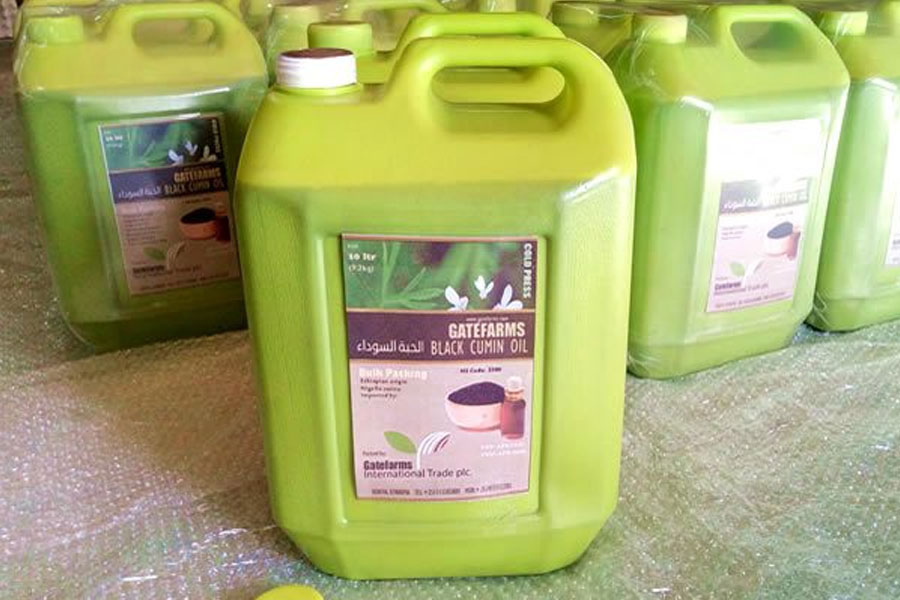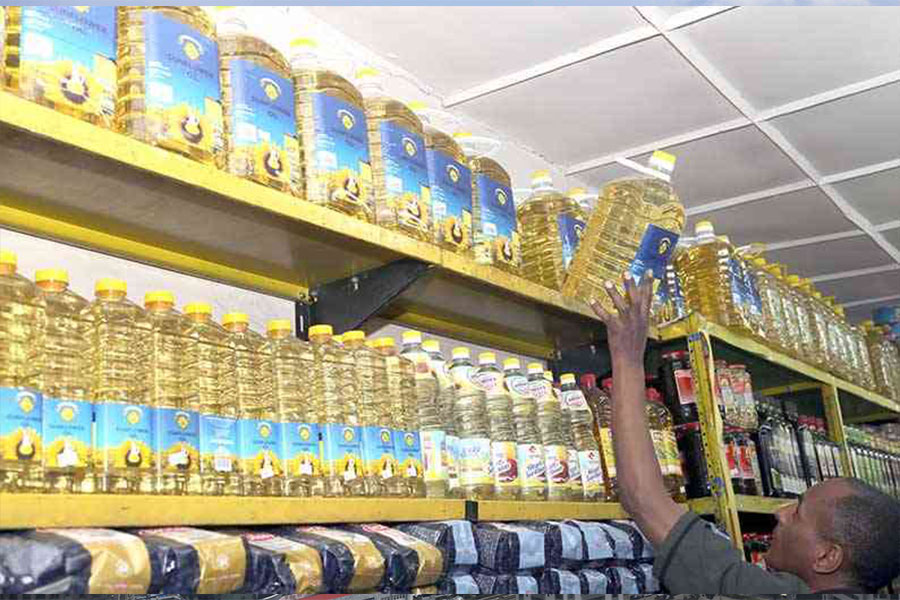
Factories located in industrial parks and importers are petitioning the government for exemption from the forex retention directive recently issued by the National Bank of Ethiopia (NBE). The factories cite that the new regulations are hindering them from obtaining the raw materials necessary for production while the importers are complaining that their stocks are running dry from the dearth of foreign currency.
In 2020, exporters of goods and services were made eligible to open two types of accounts, Foreign Retention Account A and B. The former was used to retain 30pc of export earnings in foreign currency, and the latter was an account that comprises 70pc of the export balance, which would remain as foreign currency until 28 days after the deposit when it would automatically be exchanged to Birr.
Two months ago, this was amended with a directive that requires 30pc of export proceedings to be surrendered to the central bank in foreign currency. Of the remaining 70pc, the exporter retains 45pc in foreign currency while the remainder is converted to Birr at the prevailing exchange rate. Only about 31.5pc of the total earnings can be recovered in foreign currency, with the remaining 68.5pc only available in Birr.
It is a significant alteration to the previous regime, where exporters were granted 30pc of the earnings in foreign currency while using the remaining 70pc to import essential goods within 28 days of the deposit date.
Industries working inside Hawassa Industrial Park have already expressed their disappointment over the new rule last month. "The issue requires attention because it is likely that they would experience a shortage of raw material as the amount of forex they retain is very small. This eventually results in a fall in their productivity and a decline in goods that they export," said a senior executive working inside the Park.
Importers have been also bearing the brunt of the new rule. "The abrupt change is leading factories and businesses to recover losses by hiking up their selling prices," said Fitsum Alemayehu (MD), general manager of Biotech Plc, an importer of pharmaceuticals, who used to face problems even previously to these rules with regards to getting foreign currency from banks. "For instance, we have been waiting for approval to open letters of credit (LC) for well over a year at the state-owned Commercial Bank of Ethiopia (CBE)."
They only get two a year, but even that seems doubtful now, according to Fitsum. He explained that the new measures are pushing other parties who used to get the foreign currency by themselves to join the parade and he fears that since most of them have money, they might request to deposit more than the required amount and so attain priority in allocation, pushing businesses like his out.
He urges the government to sketch a plan to help players in the import business shift to the manufacturing sector.
However, according to Fikadu Digafe, vice governor and chief economist at the central bank, the law was amended for all sectors based on a study because the previous directive had a problem. He indicated that there are no plans to change it anytime soon.
"We haven't found their complaint persuasive," he told Fortune. "We'll think about it when they present a persuasive complaint."
Lelise Neme, the commissioner at the Ethiopian Investment Commission (EIC), recognizes that investors are being challenged by these rules. Since it is a huge concern, considering their impact on the country, the Commissioner indicated that they are in discussions with the Foreign Affairs and Trade ministries to hash out possible solutions.
She explained that different factories are claiming that they are facing problems in the value chain, particularly those involved in textiles and pharmaceuticals as they need to import the vast majority of their raw materials.
“We're receiving the complaints and we're going to discuss the matter with the central bank thoroughly to find solutions,” said Lelise.
The EIC also alluded that they are supporting local investors to be introduced and enter the market with Industrial Park Development Corporation.
“The market is always open to the local investors but the issue is more about clogging gaps and giving technical support,” said Lelise.
As an indication of their support, they mentioned that local investors were previously given only up to 11,000sqm of space at parks but that cap has now been raised to 30,000sqm. Local investors at parks in Hawasa, Adama, and Meqelle have already become beneficiaries.
PUBLISHED ON
May 08,2021 [ VOL
22 , NO
1097]

Commentaries | Feb 25,2023

Fortune News | Jul 23,2022

Fortune News | Jan 30,2021

Radar | Dec 04,2022

Life Matters | Nov 27,2018

Fortune News | Sep 15,2025

Fortune News | May 21,2022

Fortune News | Jun 03,2023

Commentaries | Nov 30,2024

Radar | Oct 08,2022

Dec 22 , 2024 . By TIZITA SHEWAFERAW
Charged with transforming colossal state-owned enterprises into modern and competitiv...

Aug 18 , 2024 . By AKSAH ITALO
Although predictable Yonas Zerihun's job in the ride-hailing service is not immune to...

Jul 28 , 2024 . By TIZITA SHEWAFERAW
Unhabitual, perhaps too many, Samuel Gebreyohannes, 38, used to occasionally enjoy a couple of beers at breakfast. However, he recently swit...

Jul 13 , 2024 . By AKSAH ITALO
Investors who rely on tractors, trucks, and field vehicles for commuting, transporting commodities, and f...

Oct 11 , 2025
Ladislas Farago, a roving Associated Press (AP) correspondent, arrived in Ethiopia in...

Oct 4 , 2025
Eyob Tekalegn (PhD) had been in the Governor's chair for only weeks when, on Septembe...

Sep 27 , 2025
Four years into an experiment with “shock therapy” in education, the national moo...

Sep 20 , 2025
Getachew Reda's return to the national stage was always going to stir attention. Once...